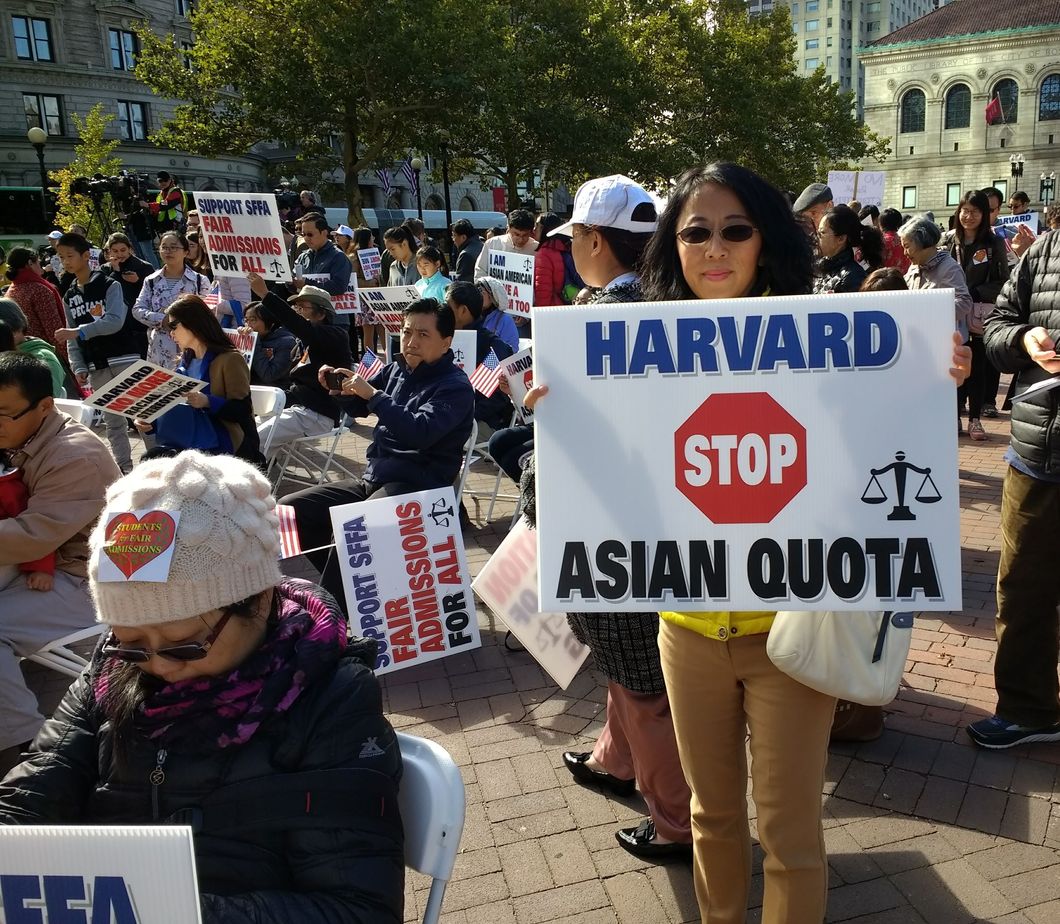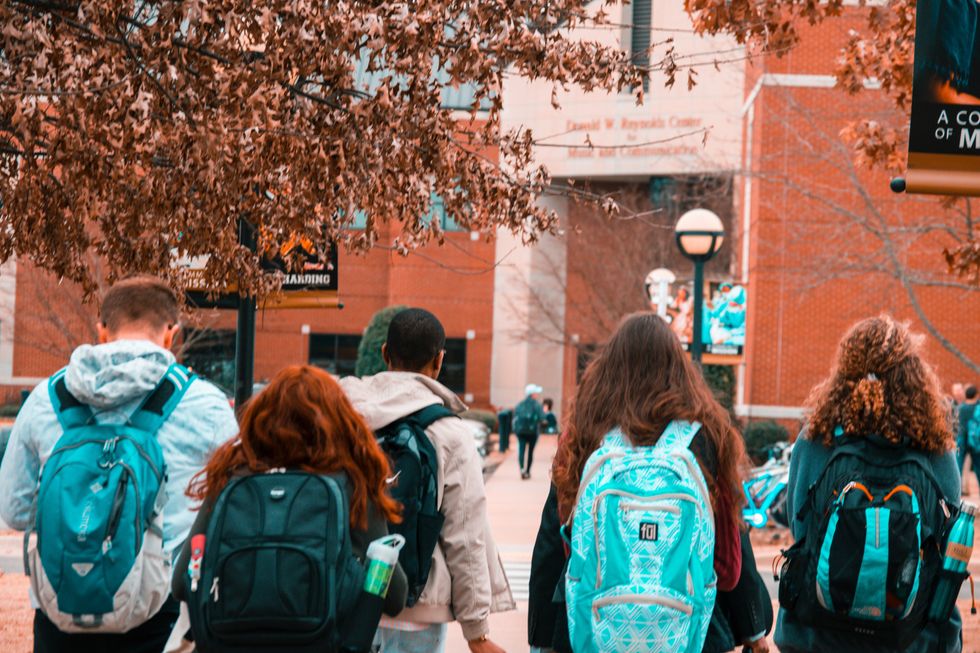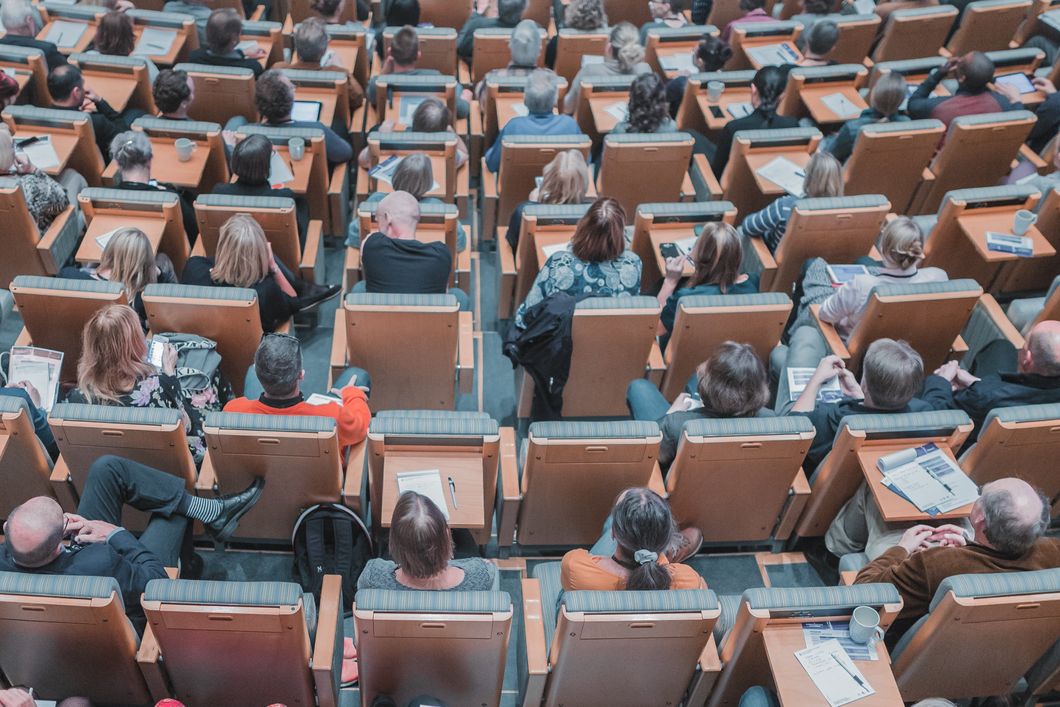Affirmative Action Is Not Discrimination Against Asian Americans
These accusations both perpetuate and weaponize the model minority myth, using Asian Americans against other BIPOC.
The Department of Justice recently accused Yale of discriminating against Asian American and white applicants in admissions. With these allegations, the DOJ is now calling for an end to race-conscious admissions. The DOJ's accusation against Yale is reminiscent of a lawsuit filed against Harvard last year, in which the organization Students for Fair Admissions accused Harvard of discriminating against Asian American applicants. These allegations of discrimination against Asian American students have become an all-too-common method of attacking affirmative action.
The DOJ's accusation presents many of the same problems as SFFA v. Harvard. Asian Americans are, being used as a token minority to oppose affirmative action. What is unique about this instance is that the DOJ has stated that Yale discriminates against both Asian American and white applicants. As an Asian American student myself, this lumping together of Asian Americans and white people doesn't exactly sit well with me.
With white people being included in allegations of race discrimination, I have to question who the DOJ's accusations are really meant to benefit. Affirmative action has been a topic of controversy for a long time, and much of the controversy surrounds a narrative that BIPOC are only admitted or hired because of their race -- that is, that they are somehow "less deserving" or "less qualified" than their white counterparts. Grouping Asian Americans with white people the way the DOJ has seems much more like a way to uphold white privilege rather than an actual effort to seek racial justice for Asian Americans.
A 2016 study found that while white applicants can greatly benefit from the elimination of race-conscious admissions, Asian American students will only see their chances of admission increase by about one percent if Black and Latinx applicants are removed from the applicant pool. We have to ask ourselves, once again, who is really going to benefit from these attacks on affirmative action? The fact that all of these groups are specifically targeting affirmative action is especially telling. Rather than seeking to eliminate policies like legacy admissions, which mainly benefits privileged students, the blame is placed on affirmative action, a policy meant to benefit underprivileged applicants.
These accusations both perpetuate and weaponize the model minority myth, using Asian Americans against other BIPOC. Lumping together Asian Americans and white people immediately creates a divide between Asian Americans and other BIPOC. The invocation of the model minority myth becomes clearer in the DOJ's singling out of Black students: as part of its allegation of race discrimination, the DOJ stated that Asian American and white applicants have a fraction of a chance of admission in comparison to Black students with "comparable records." Many Black people have to deal with people thinking that they only got their jobs or were only admitted because of their race rather than personal merit, and this comparison only perpetuates this idea. The DOJ's decision to explicitly mention Black people can and will incite anti-Blackness. Using Asian Americans against Black Americans in this way is a clear weaponization of the model minority myth.
Additionally, the perpetuation of the model minority myth will only hurt Asian Americans. The view of Asian Americans as a model minority causes Asian Americans to be viewed as a monolith, as well as an erasure of actual discrimination against Asian Americans. The usage of the model minority myth to put down other BIPOC ultimately aims to invalidate racism against BIPOC -- including Asian Americans. The model minority myth paints Asian Americans as having supposedly risen above racism, and current racism against Asian Americans is often ignored. Paired with how grouping Asian Americans and white people together plays on Asian Americans' supposed "proximity" to whiteness, Asian Americans are erased as BIPOC. If you're concerned about the lack of attention on discrimination against Asian Americans (especially during COVID-19) but support the DOJ's accusations, try thinking about how the model minority myth contributes to the erasure of racism faced by Asian Americans.
While it's easy to say that colleges should admit students based on merit with no regard for race, the reality isn't so simple. Simply comparing academic records and test scores will not necessarily speak to the full extent of what we would consider "merit." The fact is that not all students receive an equal education, and this inequality has everything to do with race. Black and Latinx Americans have the highest poverty rates of any group in the United States, especially as an effect of systemic racism. Combined with the effects of policies such as redlining, this means that many of these students may not have adequate resources available in their schools due to a lack of funding in low-income communities. Schools can have a more limited range of classes as well as less academic opportunities and resources for their students. This isn't just an issue for Black and Latinx students either: there is a sizable wealth gap within Asian Americans, and the treatment of Asian Americans as a monolith ignores the many Asian Americans living in poverty.
Furthermore, we have to take into account that programs that prepare students for college admissions are only accessible to those who are privileged. Private tutors are a privilege. SAT and ACT prep classes are a privilege. Extracurricular activites are a privilege. Ultimately, students are not on an even playing field at all, and it would be unfair for college admissions to ignore the fact that many applicants come from disadvantaged backgrounds. Affirmative action is more complicated than solely looking at an applicant's race: it really means taking into account ways in which a student may have been disadvantaged, and race can absolutely contribute to differing levels of privilege among applicants -- especially when we consider the far-reaching effects of systemic racism.
The DOJ's accusations are divisive in a time where solidarity between BIPOC is particularly necessary. Calling affirmative action an act of discrimination ignores the fact that BIPOC are disadvantaged as a consequence of a long history of racism in the United States. It ignores the effects of systemic racism, especially on Black communities, while also perpetuating the model minority myth. Eliminating affirmative action will be detrimental to BIPOC, including Asian Americans.

























Rich White Parents Can Bribe Their Kids' Ways Into College But People Are Still Mad About Affirmative Action
For years, the rich have been using their personal connections and vast wealth to continue bringing in opportunities for their lackluster children, yet for some reason, no one seems to bat an eye.
Wealthy people are paying for their kids to get into college?
*Gasp*
Honestly, tell me something I don't know.
On Tuesday, the FBI exposed a multimillion-dollar college admissions scandal executed by some of the most wealthy and prominent families in the U.S., two of which happen to be Hollywood household names. These overzealous and exceedingly wealthy parents participated in scandalous and unethical behavior, such as paying others to take their teen's admissions exams, as well as bribing college officials to say that their children were athletic recruits when they weren't athletes at all.
The most notable names from the list of 50 individuals charged are Lori Laughlin, former cast member of TV's "Full House," and Felicity Huffman, known for her role in "Desperate Housewives" as Lynette Scavo. These women appeared innocent on TV, but it's clear that the cookie-cutter demeanor their characters displayed couldn't be further from their true colors.
If we're being honest here, the only reason this is newsworthy is that the wealthy people being indicted are celebrities — not because college admissions scams are a new occurrence.
It's no surprise that the colleges where these scams have taken place have all been prestigious universities like Yale, Stanford, and UCLA. These institutions have a history of being exclusive, as well as placing money above intellect and ability. As the saying goes, "It's not about what you know, but who you know."
For years, people have been using their personal connections and vast wealth to continue bringing in opportunities for their lackluster children, yet for some reason, no one seems to bat an eye.
We all know it's going on, but no one is complaining and no one tries to stop it. It's almost as if we've just accepted that that's the way things are. Meanwhile, I hear at least one ignorant comment about affirmative action a year.
I'm being serious. It's like clockwork.
As a minority, you constantly feel as though you have to "prove" that you belong in certain spaces, especially those that are typically seen as reserved for the white, wealthy majority. With this country's history of limiting minorities' access to education, colleges and universities are definitely included in the list of those spaces. The idea that we don't belong in these spaces, nor are we good enough for them, is still highly prominent in our society, even though there have been vast increases in the percentage of minorities enrolled in postsecondary education.
As a minority student, your talents and abilities are constantly undermined, while your success is seen as the result of some type of "help."
Even though the majority of minority students busted their asses to get into college (and bust our asses every day to stay there), we are always verbally assaulted with the "affirmative action" slander. I once went to see a lecture by a distinguished marine biologist. He told us a story about someone harassing him during the early days of his career, telling him "it's because of affirmative action and people like you that I didn't get into [Harvard]." In 2008, a clueless and grossly privileged young white woman tried to sue the University of Texas for using affirmative action to discriminate against her (but the truth is that she was just a mediocre student). And for a personal example, I once sat across from one of my peers at the Honors College and heard him say "I have to look super good on my med school application or else I won't get in... Because, ya know, I'm white."
The idea that the only reason Blacks and other minorities receive opportunities is because of affirmative action needs to die.
Not only is it the furthest thing from the truth, but it is just another way to denigrate an entire group of people and diminish their accomplishments. Why are minorities always blamed when a white person doesn't receive the opportunity they think they deserve? The same people who think it's preposterous to say that white privilege exists are the same people claiming how "unfair" affirmative action is.
The truth of the matter is that affirmative action is not some sort of privilege to minorities (Blacks are still the smallest population of those currently attending college), and minorities aren't "stealing" opportunities from anyone. Perhaps if we acknowledged that the biggest threat to integrity in college admissions are wealthy and elite, we could end this tired debate around affirmative action and stop the actually mediocre kids from getting into colleges they don't deserve to attend.